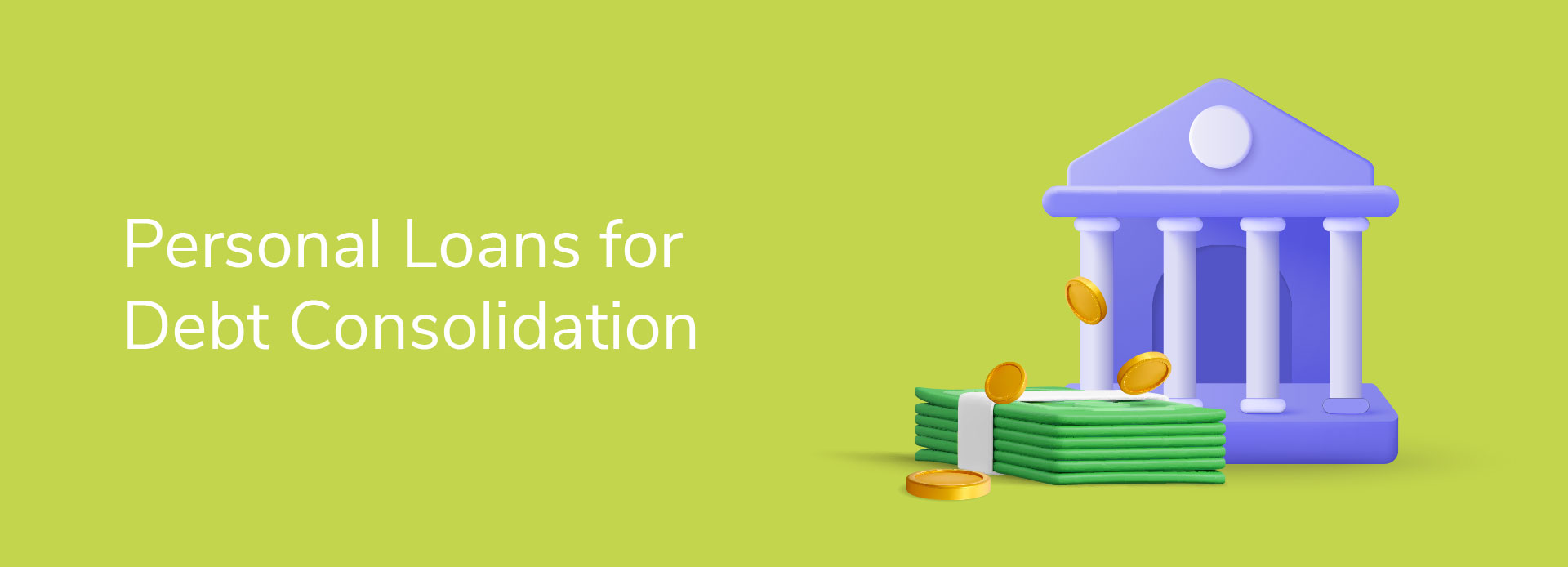
Using Personal Loans for Debt Consolidation: Pros and Cons
27 May 2024 | By INDIE
At its core, debt is a burden that weighs on the shoulders of many. Whether it's the constant reminders from creditors or the thought of paying a high-interest amount, being in debt can feel suffocating. Nobody enjoys the feeling of being indebted, and the desire to break free from this financial strain is universal, which is why many people consider borrowing either a personal loan for debt consolidation or taking the benefit of a line of credit.
After all, the prospect of consolidating multiple debts into one manageable payment can offer a sigh of relief from financial worries. If you want to know more about debt consolidation, let us help you get to the basics first.
What is Debt Consolidation?
Debt consolidation, as a financial strategy, aims at simplifying the repayment of multiple debts by combining them into a single loan. It aims to streamline the repayment process by merging all debts into one, often with a lower interest rate, instead of juggling various payments with different interest rates and due dates. This consolidated loan or credit line replaces the individual debts, leaving you with one monthly payment to manage.
Recommended Read: Understanding Personal Loans
Pros of Borrowing an Easy Personal Loan for Debt Consolidation
1. Ease of Debt Repayment
Consolidating multiple debts through a personal loan can simplify your financial obligations by amalgamating various monthly payments into one. This way, you need not juggle multiple due dates and amounts but make just one payment to track. Eventually, this will make budgeting and financial management easier for you.
2. Lower Interest Rates
Personal loans offer lower interest rates than credit cards and many other forms of debt. You can potentially reduce the amount of interest you pay over time by consolidating multiple debts into a single loan with a lower rate, saving you money in the long run.
3. Predefined Repayment Terms
Personal loans have fixed repayment terms, meaning you know about the monthly amount payable and the loan duration throughout the period. This predictability allows you to plan your finances effectively, knowing exactly how much you need to pay each month and when you'll become debt-free.
4. Enhanced Credit Score
Timely payments on a consolidated personal loan can positively impact your credit score. You may see an increase in your creditworthiness over time by demonstrating responsible financial behaviour and reducing your overall debt load. A higher credit score can lead to better loan terms and increased financial opportunities in the future.
5. Faster Debt Payoff
With a lower interest rate and a clear repayment plan, debt consolidation can accelerate your journey towards becoming debt-free. By paying off your debts more quickly, you not only save money on interest but also gain financial freedom sooner, allowing you to focus on other financial goals and priorities.
Cons of Borrowing Personal Loan for Debt Consolidation
1. Additional Debt
While consolidating debts can simplify repayment, it doesn't eliminate the underlying debt. Borrowing a personal loan can help transfer your debts rather than reduce them. This means you'll still owe the same amount overall. Selecting a loan option just for the sake of it can potentially lead to a longer repayment period.
2. Extra Fees
Lenders charge processing fees associated with personal loans. These additional costs can eat into any potential savings you might gain from consolidating your debts. This is why you must weigh on these fees when evaluating the overall cost-effectiveness of debt consolidation.
3. Risk of Losing Collateral
Personal loans are unsecured, which means they don't require collateral. However, if you opt for a secured personal loan, such as a home loan, you risk losing collateral (e.g., your home) if you default on the loan. This adds an extra layer of risk to the debt consolidation process.
4. Impact on Credit Score
While timely payments on a consolidated loan can improve the credit score, applying for a new loan may initially lower your score due to the credit inquiry and the new account opening.
Disclaimer: The information provided in this article is generic and for informational purposes only. It is not a substitute for specific advice in your circumstances. Hence, you are advised to consult your financial advisor before making any financial decision. IndusInd Bank Limited (IBL) does not influence the views of the author in any way. IBL and the author shall not be responsible for any direct/indirect loss or liability incurred by the reader for making any financial decisions based on the contents and information.




